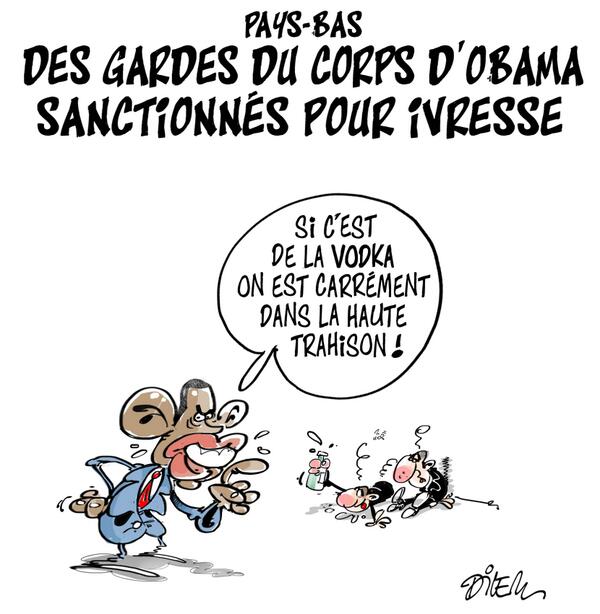Tournée d'#Obama en #Europe : @AliceToulemonde présente un dessin de Dilem @CartooningPeace dans le #DébatF24. pic.twitter.com/gbHapkZgIA
Sunday, 30 March 2014
Louvre on twitter
Découvrez la salle Saint-Louis, seul intérieur médiéval encore conservé au #Louvre #ArchiMW http://bit.ly/1obgtA3 pic.twitter.com/fSIdlSaAYh
Saturday, 29 March 2014
Thursday, 27 March 2014
Adjectives that go before the noun
For a full list of adjectives that go before the noun in French, have a look here .
For a short list, try these from wikibooks:
And if you likea more academic approach, try here .
For a short list, try these from wikibooks:
Adjectives that precede nouns
List
Adjectives that are used frequently before nouns. These are:
- affreux (affreuse)
- autre
- beau (belle)
- bon(ne) +
- court(e) +
- dernier (dernière) +
- gentil (gentille)
- grand(e) +
- gros(se) +
- haut(e)
- jeune +
- joli(e)
- large
- long(ue)
- mauvais(e)
- méchant(e) +
- meilleur(e)
- nouveau (nouvelle)
- pauvre
- petit(e)
- vieux (vieille)
- vilain(e)
+ sometimes placed after a noun, and may change in meaning
And if you likea more academic approach, try here .
Tuesday, 25 March 2014
Irregular present tense verbs
So not all present tense verbs do the same thing, which makes them both interesting and frustrating!
Today I'll think about appeler and jeter
appeler does a double l variation and jeter a double t
Like this (imagine all this sung to doh a deer tune)
j'appelle - I call
tu appelles - you call
il/elle/on appelle - he/ she / we call
nous appelons - we call
vous appelez - you call
ils/ elles appellent - they call
and then jeter to throw
je jette - i throw
tu jettes - you throw
il/elle/on jette - he/ she throws /we throw
nous jetons - we throw
vous jetez - you throw
ils/ elles jettent - they throw
So you see, the nous and vous forms look like the infinitive and all the other parts change!
Sunday, 23 March 2014
Monday, 17 March 2014
Sunday, 16 March 2014
Flowers
There are some lovely flower vocab cards at http://a51.idata.over-blog.com/0/51/64/42/Jeu_5FamillesPlantes/Compil-5famillesFleursBulbes600.png
Ways to learn être verbs
être verbs can be tricky to remember at first. You've just mastered the avoir plus past participle and suddenly you have to remember another group.
There are a few good ways to learn these verbs:
1. the house
source: http://commons.wikimedia.org/wiki/File:La_maison_etre.jpg
2. the castle

source: https://blogger.googleusercontent.com/img/b/R29vZ2xl/AVvXsEhB_dm6Jtzh0pgg6OyljNVcCPYdHlRfPfLzwjvLjbyl8SUC_HGR85w_eDxZ2qFlSt8wTlTLWydptK8NrsCAmsjGoroof3-Lxb7c0cnTD_jnG7BEnYD_TehNrQyZOIu_kGhuluUvhSem5Kum/s1600/etrepic.jpg
3. Mr and Mrs Vandertramp

source: http://tpsfrench9.wikispaces.com/file/view/Dr-And-Mrs-Vandertramp-French-Chart-N6060_XL.jpg/322083846/Dr-And-Mrs-Vandertramp-French-Chart-N6060_XL.jpg
There are a few good ways to learn these verbs:
1. the house
source: http://commons.wikimedia.org/wiki/File:La_maison_etre.jpg
2. the castle
source: https://blogger.googleusercontent.com/img/b/R29vZ2xl/AVvXsEhB_dm6Jtzh0pgg6OyljNVcCPYdHlRfPfLzwjvLjbyl8SUC_HGR85w_eDxZ2qFlSt8wTlTLWydptK8NrsCAmsjGoroof3-Lxb7c0cnTD_jnG7BEnYD_TehNrQyZOIu_kGhuluUvhSem5Kum/s1600/etrepic.jpg
3. Mr and Mrs Vandertramp
source: http://tpsfrench9.wikispaces.com/file/view/Dr-And-Mrs-Vandertramp-French-Chart-N6060_XL.jpg/322083846/Dr-And-Mrs-Vandertramp-French-Chart-N6060_XL.jpg
Monday, 10 March 2014
L'infinitif
Infinitives come in three main flavours in French:
1. -er verbs like marcher and acheter
2. -ir verbs like finir and choisir
3. -re verbs like vendre and rendre
-er verbs are the most common.
je marche - je marchais - j'ai marché - je marcherai
i walk - i was walking - i have walked - i will walk
1. -er verbs like marcher and acheter
2. -ir verbs like finir and choisir
3. -re verbs like vendre and rendre
-er verbs are the most common.
je marche - je marchais - j'ai marché - je marcherai
i walk - i was walking - i have walked - i will walk
Thursday, 6 March 2014
Subjunctive conjunctions
In need of a list of conjunctions that trigger the subjunctive? There's a great list at
http://french.about.com/od/grammar/ss/subjunctive_6.htm
Subscribe to:
Comments (Atom)

 Débat FRANCE 24
Débat FRANCE 24



















